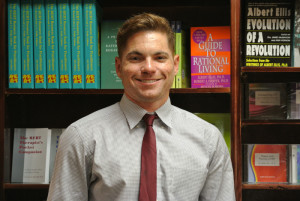by William Taboas, M.A.
What if I make the wrong choice?
What if I can’t escape an unexpected stressful situation?
What if I’m stuck in this job?
What if my marriage doesn’t last?
What if people will judge me?
What if…?
Uncertainty, much like death and taxes, is part of life. What I mean by this is that while our life decisions may lead us down a path, we rarely know where it will take us. For some people, this notion is thrilling, exciting, and liberating. For others, it is stress-inducing, and paralyzing. But, why the difference?
Most humans enjoy having control of outcomes, particularly those that favor us. It would be preferable to get our way, but that’s not the part that upsets us. The part or pieces that upset us include holding on to rigid demands for control. While some of wish and prefer that an outcome favors us, some of us demand that it must favor us.
We also tend to upset ourselves by underestimating our ability to cope with aversive outcomes or not getting our way. Others overestimate the threat that the aversive outcome poses, to the point of catastrophe. Some of us even rate ourselves as an unworthy, no-good human being for not getting our way, not getting what we wish for, or letting other people down.
When we hold on to this need for control and need for reassurance rigidly, we start to avoid facing our fears, even avoid taking risks that could potentially open more doors in our favor. By engaging in an avoidance cycle, for example by postponing, procrastinating, and distracting, we reinforce the demanding need for certainty, and the upsets that come with it. We also don’t get to learn an important lesson in humanity- that we are fallible beings that are more resilient than we think.
Be certain that uncertainty is not going away. And much like statistician Nate Silver asserts, there is much folly in our predictions and our sense of certainty. Maybe things will work out, maybe not, but we can control ourselves in terms of the way we think about the outcome. Chances are we will bounce back from aversive outcomes.

